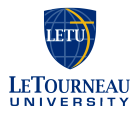Below is a summary of the abstract you submitted. Presenting author(s) is shown in bold.
If any changes need to be made, you can modify the abstract or change the authors.
You can also download a .docx version of this abstract.
If there are any problems, please email Dan at dar78@pitt.edu and he'll take care of them!
This abstract was last modified on March 18, 2021 at 6:29 p.m..

Bacteriophages are viruses that infect bacterial hosts, such as Mycobacterium smegmatis, in order to reproduce. Phages are unable to replicate independently and must override the host’s reproductive machinery to produce progeny virions and genomes. Apart from methionine and tryptophan, all amino acids are encoded by at least two synonymous codons. Due to the differential availability of tRNA in cells, some synonymous codons are rarely used, while other “preferred codons” are more often used in a given host. This phenomenon is termed “codon usage bias”. Because the virus must utilize the host translational machinery to replicate, an infecting virus will likely have trouble replicating in a host whose codon usage bias is very different from its own. The presence of various tRNA-encoding genes may confer a selective advantage to a phage by allowing it to infect and replicate in a wider range of hosts, thereby increasing their ability to survive in diverse environments.
Mycobacteriophages typically encode tRNA genes. Previous research in our laboratory indicated that Mycobacteriophages in clusters C, L, M, and V contain the highest numbers of tRNA encoding genes. It can be hypothesized that bacteriophages with many tRNAs have a wider host range and selective advantage over other bacteriophages that do not possess tRNA genes.
In this study, tRNA encoding genes from a variety of Actinobacteria phage clusters were analyzed to widen the current knowledge of extreme codon usage biases in Actinobacteria phage encoded tRNA genes and host codon usage biases. Furthermore, tRNA anticodons were compared to the codon usage of the phages and potential environmental bacterial hosts. Actinobacteria phage hosts analyzed in this study include Arthrobacterium, Gordonia, Microbacterium, and Streptomyces spp. Phage tRNA genes were identified using DNA Master, Aragorn, and tRNAscan-SE, and DNA Master-generated codon bias tables were analyzed. Phage tRNA versus host codon usage bias data will be reported and possible implications for phage host range will be discussed.
